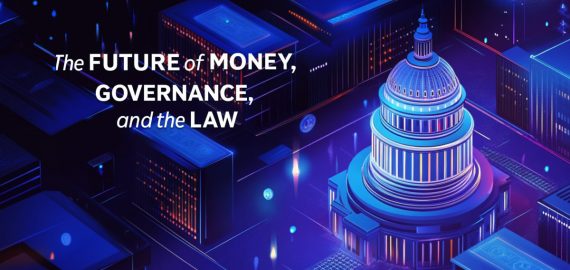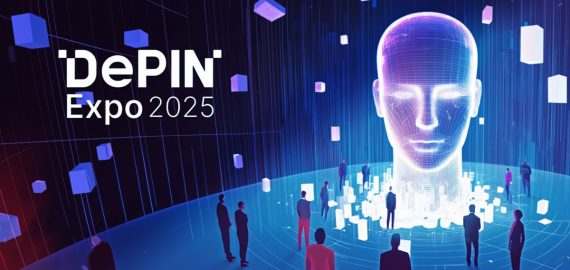The U.S. Chamber of Commerce’s Artificial Intelligence Commission Calls for Regulatory Framework for AI

In Brief
The U.S. Chamber of Commerce’s Artificial Intelligence Commission on Competitiveness, Inclusion, and Innovation today released a comprehensive report on AI.
The Commission predicts that every business and government agency will be using AI over the next 10-20 years.
The Commission recommends that laws should be technology-neutral and focus on applications and outcomes of AI, not the technologies themselves.

The U.S. Chamber of Commerce’s Artificial Intelligence Commission on Competitiveness, Inclusion, and Innovation has released a comprehensive AI report on the potential of AI. It is also calling for a risk-based regulatory framework.
The report was unveiled today at an event hosted at the U.S. Chamber of Commerce headquarters and comes as AI is projected to deliver additional economic output of around $13 trillion by 2030, boosting global GDP by about 1.2 percent a year, according to McKinsey.
From autonomous vehicles, healthcare, and Natural Language Processing (NLP) to finance and climate change research, use cases and innovative applications for AI are expected to increase as the technology evolves.
During its deep dive into AI, the Commission found that virtually every business and government agency will be using AI over the next 10-20 years and that future advances in customer services and productivity gains—as well as the emergence of new security threats—will be powered by AI.
This, however, debunks Marc Andreessen’s argument that AI will not cause a rise in unemployment as 99% of the economy will be heading towards the regulated, non-technological sectors, where technological innovation is currently “virtually forbidden.” As the regulatory framework for AI develops, the artificial intelligence field will eventually become part of a regulated sector that dominates the economy.
The Commission urges policymakers to be informed about the possible negative applications of AI.
“AI presents unique challenges from national security implications to privacy concerns to ensuring that harmful biases are not hardwired into the next generation of technological systems to potential large scale job disruptions,”
said co-chairman of the AI Commission and former U.S. Representative John Delaney (D-MD).
The top priorities for policymakers to encourage responsible adoption and use of AI, as outlined in the report, include workforce preparation, global competitiveness, and national security. The report also recommended a risk-based regulatory framework to mitigate potential hazards. Additionally, the report provided many other recommendations as part of its regulatory framework, such as:
- Appropriate enforcement of existing laws and regulations.
- Laws should be technology-neutral and focus on applications and outcomes of AI, not the technologies themselves (e.g., machine learning, AI, language learning).
- Increase AI education, as well as the AI talent pool, to minimize disruptions to the American workforce.
- Collaborate with key partners and allies to develop more sensible global governance frameworks.
“We must address these issues in a clear-eyed fashion, harness the enormous economic and quality of life potential that can flow from AI innovation, and protect the rights of all Americans. This will require close coordination and collaboration between government and industry,” Delaney added.
Read more:
Disclaimer
In line with the Trust Project guidelines, please note that the information provided on this page is not intended to be and should not be interpreted as legal, tax, investment, financial, or any other form of advice. It is important to only invest what you can afford to lose and to seek independent financial advice if you have any doubts. For further information, we suggest referring to the terms and conditions as well as the help and support pages provided by the issuer or advertiser. MetaversePost is committed to accurate, unbiased reporting, but market conditions are subject to change without notice.
About The Author
Cindy is a journalist at Metaverse Post, covering topics related to web3, NFT, metaverse and AI, with a focus on interviews with Web3 industry players. She has spoken to over 30 C-level execs and counting, bringing their valuable insights to readers. Originally from Singapore, Cindy is now based in Tbilisi, Georgia. She holds a Bachelor's degree in Communications & Media Studies from the University of South Australia and has a decade of experience in journalism and writing. Get in touch with her via [email protected] with press pitches, announcements and interview opportunities.
More articles

Cindy is a journalist at Metaverse Post, covering topics related to web3, NFT, metaverse and AI, with a focus on interviews with Web3 industry players. She has spoken to over 30 C-level execs and counting, bringing their valuable insights to readers. Originally from Singapore, Cindy is now based in Tbilisi, Georgia. She holds a Bachelor's degree in Communications & Media Studies from the University of South Australia and has a decade of experience in journalism and writing. Get in touch with her via [email protected] with press pitches, announcements and interview opportunities.

















































